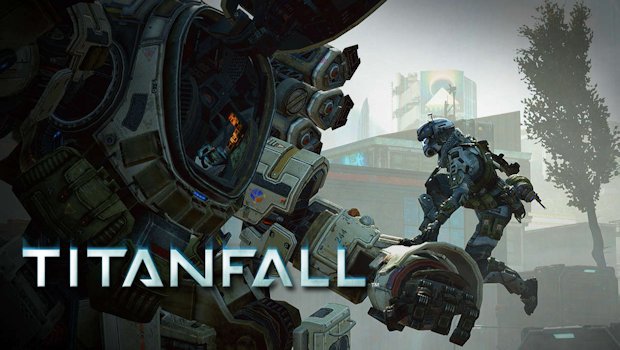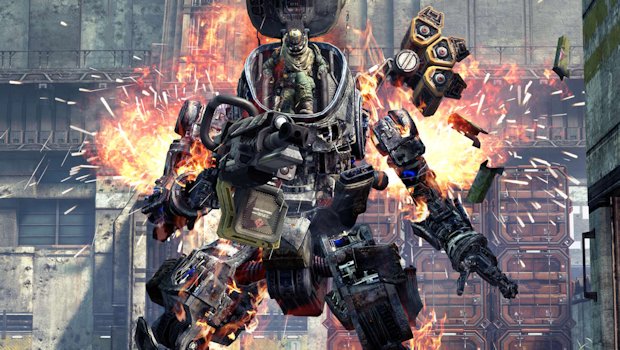With Titanfall out and everyone, including our own staff, drooling over it as the next evolution of the shooter genre, what does this mean for the genre leaders Call of Duty and Battlefield? What can the big guns learn from the newcomer? And more importantly, is this the beginning of a changing of the guard for the genre?
For as much praise as Titanfall has amassed, the game is not going to dethrone Call of Duty or Battlefield as the king of the genre. At least not yet. Sheer numbers alone will keep those long running series at the top of the heap for the next couple years. But in a year where Call of Duty was generally regarded as disappointing and Battlefield was a consumer nightmare, Titanfall’s critical and commercial success (nearly a million copies sold in the first week of release) are certainly eye opening. Gamers want something different from their shooter experience and Titanfall is giving it to them.
The first thing that the DICE and CoD development collective can take away from Titanfall is that being multiplayer only is accepted by the majority of the audience, including those on consoles. DICE in particular should be happy with this as their last two core Battlefield titles shoehorned atrocious single player campaigns into the package to flesh out the product for a console audience.
Another thing the old guard can take away is that they must make progression fun again. Titanfall sees its players advancing quickly and efficiently through gameplay and challenges. At every turn they unlock new weapons or equipment to further flesh out their pilot via challenges that are fun and attainable. And re-gening, Titanfall’s way of prestiging, is actually meaningful with generation specific challenges to complete that force players to play outside their comfort zone to advance to the next generation of pilots. Having a gen number next to your gamertag feels meaningful, something that neither Call of Duty or Battlefield can say about their progressions systems.
Coinciding with the progression system are the unlocks, be they new weapons, ordnance, or equipment. One of the biggest complaints against Titanfall is that it lacks the depth of customization options that something like Call of Duty or Battlefield have. For instance Titanfall’s entire selection of pilot weaponry is comparable to the other two’s selection of near identical assault rifles. But the thing is, the far more limited set of unlocks balances things out both on the field and in the progression system. Whereas while it feels like forever between unlocks in Call of Duty and Battlefield, I always felt I was just around the corner from getting something cool in Titanfall. We don’t need 1000 options to keep us happy; we just need enough to keep us occupied.
The final thing the rulers of the genre can learn from Titanfall is that there are ways to make the game fun for those that aren’t winning. Battlefield and Call of Duty both suffer from frustration setting in when one’s team isn’t doing well and this can extend out over multiple rounds of play, to the point where players shut the game off in frustration. Titanfall always makes you feel relevant and, by doing so, it is always fun regardless of who is winning. Finding how to do this in other games may be tricky because so much is placed on the competitive approach of player vs. player. But, if either game wants to keep their massive fanbase of casual gamers, it needs to find a way to alleviate that frustration.
Regardless of if Battlefield and Call of Duty make fundamental changes to their core structure, neither franchise is going anywhere. They both have a massive core fanbase of hardcore players that will always make the game viable. However, without change, they will lose players to upstarts like Titanfall and won’t be as dominant as they once were. How ever it plays out, Titanfall is a wonderful first salvo in the war to evolve the first person shooter and that can only mean great things for the rest of us.


